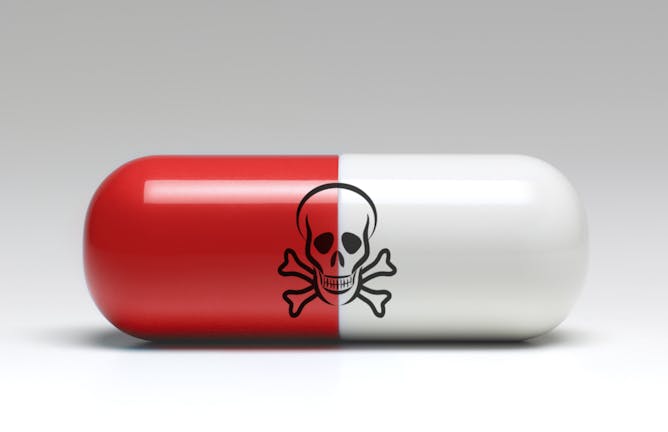|
A reckoning is underway regarding the tens of thousands of Americans who have died from overdoses, and the lives destroyed from addiction to prescription opioids. Many companies that profited greatly from the excessive sales of painkillers are now reaching settlements that will force drugmakers, distributors and other firms to pay billions to governments and survivors.
One of those companies belongs to two branches of a single family: the Sacklers. Until recently, they were better known for their support for the arts and higher education than their connection to the opioid crisis through their ownership of Purdue Pharma, the maker of OxyContin. As much of this litigation wraps up, it’s tempting to blame them for the entire opioid crisis. Although they did play a pivotal role, David Herzberg, a University at Buffalo historian who researches addictive prescription drugs, argues that Purdue’s misbehavior points to broader problems in the pharmaceutical industry. Until those problems are fixed, he warns, “the unhappy history of
addictive prescription drugs will keep repeating itself.”
Also today:
|

|
Emily Schwartz Greco
Philanthropy + Nonprofits Editor
|
|

It’s too easy to sell dangerous prescription drugs.
Peter Dazeley/The Image Bank via Getty Images
David Herzberg, University at Buffalo
Making them pay is important but it’s not going to stop drugmakers from endangering public health.
|
Health + Medicine
|
-
Suresh V. Kuchipudi, Penn State
Face masks are still an effective way to help stop the spread of the BA.5 subvariant.
-
Dave Smallen, Metropolitan State University
Psychology researchers know what kinds of behavior enhance feelings of social connection.
|
|
Environment + Energy
|
-
Kristen A. Baum, Oklahoma State University
The iconic monarch butterfly has been added to the Red List of endangered species, but hasn’t received protection in the US yet. That’s not necessarily a bad thing.
|
|
Economy + Business
|
-
Rebecca J. Davis, Stephen F. Austin State University
An economist explains coal power’s rise and fall in charts.
|
|
Politics + Society
|
-
Joshua Holzer, Westminster College
Created in Europe during a time of intercultural struggle and strife, Esperanto was meant as a communication tool to spread peace among the people of the world. Its speakers are still at it.
|
|
Ethics + Religion
|
-
Sabine von Mering, Brandeis University; Monika Hübscher, University of Duisburg-Essen
Antisemitism today does not always appear in the form of traditional hate speech. It manifests in GIFs, memes, vlogs, comments and reactions on social media platforms.
-
Eva von Dassow, University of Minnesota
A scholar of the ancient Near East explains how loan forgiveness was handled thousands of years ago in the Bible and royal decrees.
|
|
Science + Technology
|
-
Iain Boyd, University of Colorado Boulder
Build a powerful enough laser, and you can shine it into space. Aim it well, and you can blind satellites.
|
|
Education
|
-
Kiersten Tate, The Conversation
Scholars discuss topics that are related to Title IX, such as sexual misconduct on college campuses and bans on transgender athletes in high school sports.
|
|
From our international editions
|
|
|
|
|
|
| |
| |
| |
| |
|
|